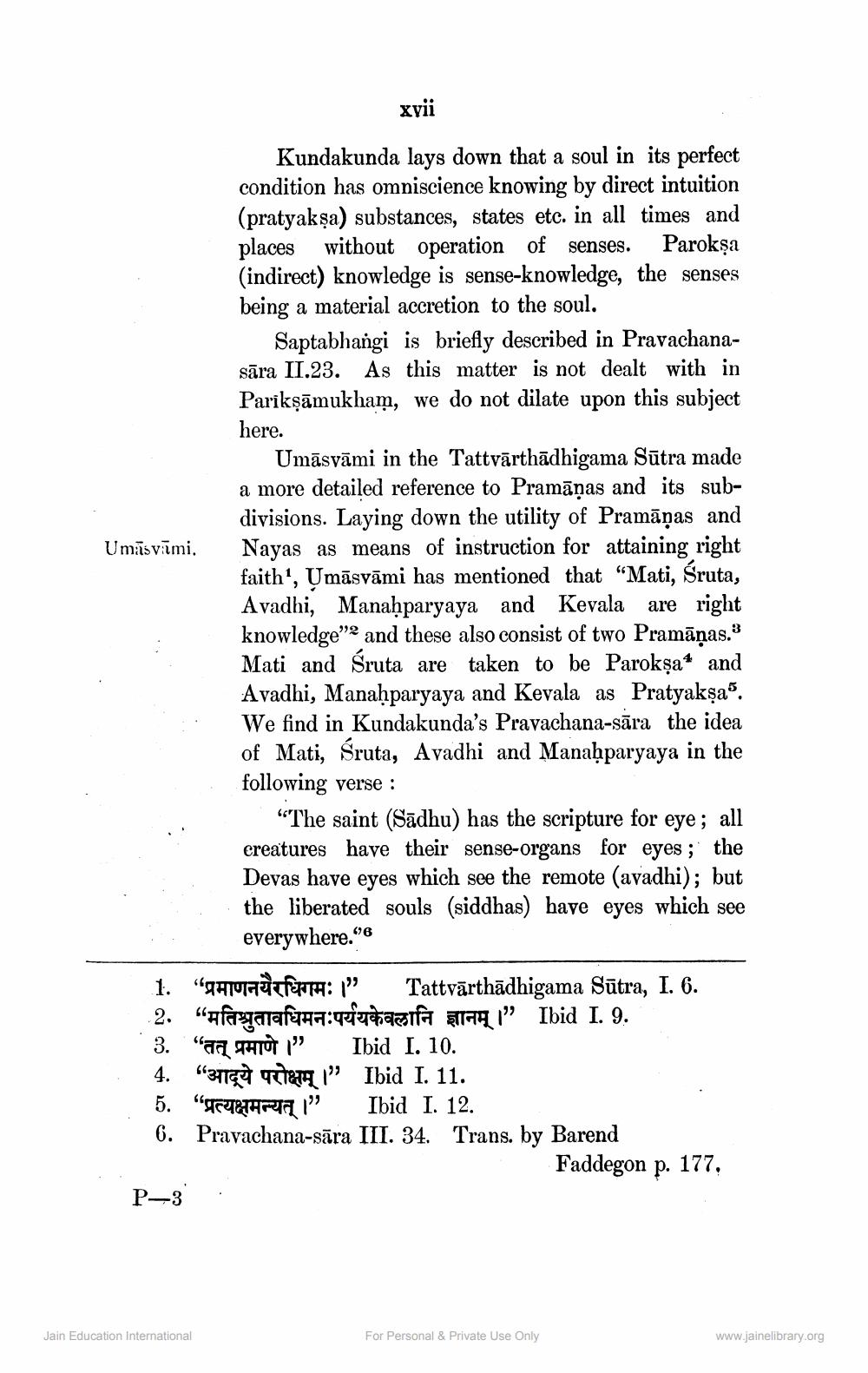________________
Umasvami.
P-3
xvii
Kundakunda lays down that a soul in its perfect condition has omniscience knowing by direct intuition (pratyakṣa) substances, states etc. in all times and places without operation of senses. Parokṣa (indirect) knowledge is sense-knowledge, the senses being a material accretion to the soul.
Jain Education International
Saptabhangi is briefly described in Pravachanasara II.23. As this matter is not dealt with in Parikṣāmukham, we do not dilate upon this subject
here.
Umāsvami in the Tattvarthadhigama Sūtra made a more detailed reference to Pramāņas and its subdivisions. Laying down the utility of Pramaņas and Nayas as means of instruction for attaining right faith', Umasvami has mentioned that "Mati, Śruta, Avadhi, Manaḥparyaya and Kevala are right knowledge" and these also consist of two Pramāņas. Mati and Śruta are taken to be Parokṣa1 and Avadhi, Manaḥparyaya and Kevala as Pratyakṣas. We find in Kundakunda's Pravachana-sara the idea of Mati, Śruta, Avadhi and Manaḥparyaya in the following verse:
3
1. “ प्रमाणनयैरधिगमः ।"
2. “मतिश्रुतावधिमनः पर्ययकेवलानि ज्ञानम् ।” Ibid I. 9.
3. " तत् प्रमाणे ।”
4. "
5.
6. Pravachana-sara III. 34.
"The saint (Sadhu) has the scripture for eye; all creatures have their sense-organs for eyes; the Devas have eyes which see the remote (avadhi); but the liberated souls (siddhas) have eyes which see everywhere."
" प्रत्यक्षमन्यत् । "
"
Tattvarthadhigama Sutra, I. 6.
Ibid I. 10.
Ibid I. 11.
Ibid I. 12.
Trans. by Barend
For Personal & Private Use Only
Faddegon p. 177,
www.jainelibrary.org




